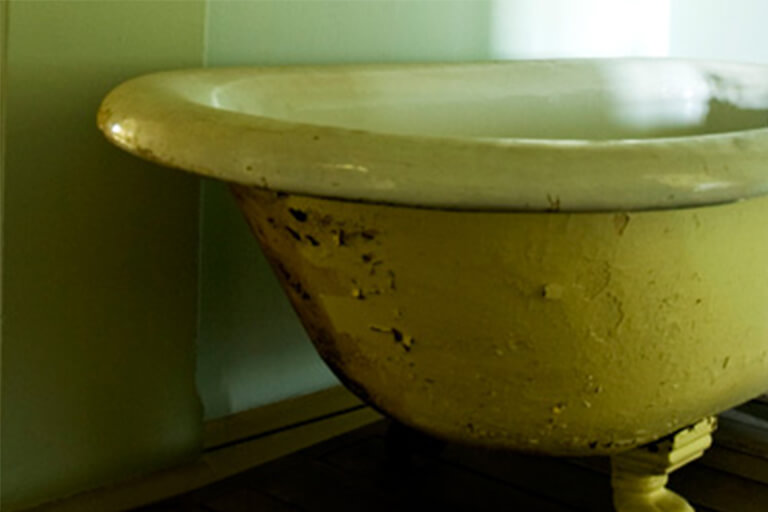Muslim Voices — Kahf

Audio transcript:
0:00:06:>>MANAF BASHIR: Welcome to Muslim Voices. I'm your host, Manaf Bashir.
0:00:12:(MUSIC PLAYING)
0:00:12:>>MANAF BASHIR: Growing up is difficult for anyone, with the teen years being especially hard. But when you are different, they only seem harder. Writer Mohja Kahf is a Muslim woman whose family moved from Syria to the United States in 1971, when she was still just a child. As she struggled with all the normal issues kids deal with, she also struggled with the fact that people did not know much about her religion. In fact, they often hated what they thought it stood for. That struggle between her faith and the society in which she lived finds its way into virtually all of Kahf's writing. It was a subject of her first novel, "The Girl In The Tangerine Scarf." And it's the subject of this shorter piece about foot-washing.
0:00:55:>>MOHJA KAHF: (Reading) My grandmother puts her feet in the sink of the bathroom at Sears to wash them in the ritual washing for prayer, wudu, because she has to pray in the store, or she will miss the mandatory prayer time. She does it with great poise, balancing herself with one plump, matronly arm against the automated hot air hand dryer after having removed her support knee-highs and laid them aside, folded in thirds, and given me her purse and her packages to hold so she can accomplish this august ritual and get back to the ritual of shopping for housewares. Respectable Sears matrons shake their heads and frown as they notice what my grandmother is doing - an affront to American porcelain, contamination of American standards by something foreign and unhygienic requiring civic action and possible use of disinfectant spray. They fluster about a flutter their hands, and I can see a clash of civilizations brewing in the Sears bathroom. My grandmother, though she speaks no English, catches their meaning, and her look in the mirror says, I have washed my feet over is Iznik tile in Istanbul with water from the world's ancient irrigation systems. I have washed my feet in the bathhouses of Damascus over painted bowls imported from China among the best families of Aleppo. And if you, American, know anything about civilization and cleanliness, you'd make wider wash basins anyway. My grandmother knows one culture - the right one - as do these matrons of the Middle West. And my elegant grandmother might as well have been squatting in the mud over a rusty tin in vaguely tropical squalor, Mexican or Middle Eastern - it doesn't matter. When she lifts her well-groomed foot and puts it over the edge - you can't do that, one of the women protests, turning to me. Tell her she can't do that. We wash our feet five times a day, my grandmother announces hotly in Arabic. My feet are cleaner than their sink. Worried about their sink, are they? I should worry about my feet. My grandmother nudges me. Go on. Tell them. Standing between the door and the mirror, I can see at multiple angles my grandmother and the other shoppers, all of them decent and good-hearted women, diligent in cleanliness, grooming and decorum. Even now, my grandmother, not to be rushed, is delicately drying her pumps with tissues from her purse. For my grandmother always wears well-turned pumps that match her purse, I think in case someone from one of the best families of Aleppo should run into her here in front of the Kenmore display. I smile at the Midwestern women as if my grandmother has just said something lovely about them and shrug at my grandmother as if they had just apologized to her through me. No one is fooled, but I hold the door open for everyone, and we all emerge onto the sales floor and lose ourselves in the great common ground of housewares on markdown.
0:05:26:(MUSIC PLAYING)
0:05:33:>>MANAF BASHIR: Mohja Kahf is a Muslim American writer. She teaches literature at the University of Arkansas, Fayetteville. This has been "Muslim Voices," a production of Voices and Visions in partnership with WFIU Public Media from Indiana University. Support for Muslim Voices comes from the Social Science Research Council. You can subscribe to our podcast on iTunes or join the discussion on our website. Find us online at muslimvoices.org.
0:05:59:(MUSIC PLAYING)


 IU Global
IU Global